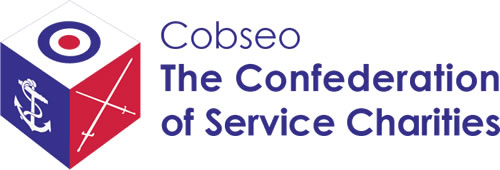ARNO/ RNOC has put together some briefing notes on the Common Reporting Standard:
Under a global agreement for exchange of information and an EU Directive on Administrative Cooperation known as the Common Reporting Standard (CRS), any charity which receives 50% or more of its gross income from investments and has any part of those assets under management via a discretionary investment mandate, falls within the definition of a “Financial Institution” and is therefore required to obtain data and potentially report on “Account Holders”.
A Financial Institution that is legally formed as a charitable trust will have to regard its charitable grantees as well as any living settlor as “Account Holders”, since these will be seen under the CRS as having an “equity interest” in the charity. This means that due diligence will need to be undertaken on all beneficiaries of those charitable trusts. Essentially this means determining whether or not a beneficiary is resident in the UK for tax purposes, and if not, beneficiaries should be asked to self-certify their tax residence and to provide a tax identification number if possible.
A Financial Institution that is legally constituted as a company limited by guarantee (or a CIO) does not have to treat its beneficiaries as “Account Holders”, and therefore has no due diligence or reporting requirements under CRS unless it has permanent endowment funds. This is a major shift from the previous guidance which indicated that it made no difference as to whether a charity was incorporated or not.
All charitable Financial Institutions, regardless of legal form, will have to report on loans and other “debt interests” in relation to Account Holders resident in reportable jurisdictions.
If an Account Holder is tax resident in a reportable jurisdiction, the Financial Institution will have to make a report to HMRC by 31 May 2017 in respect of grants made during 2016. The list of reportable jurisdictions is being added to on a regular basis.
In their guidance issued in September 2016, HMRC have indicated the following practical steps can be taken to satisfy the due diligence requirements:
1) Information on a beneficiary’s tax residence can be obtained verbally if necessary, as part of a grant application form or using a standalone form. For non-UK tax residents, this includes obtaining and keeping identity evidence and “Tax Identification Numbers” for those beneficiaries – and this also includes obtaining identity and tax information on all the beneficiary charity trustees if the beneficiary charity is unincorporated.
2) For UK residents, HMRC has accepted that if the beneficiary is a registered charity with the Charity Commission for England and Wales/Northern Ireland/Scotland, the reporting charity can assume that the beneficiary charity is UK resident for tax purposes and no further due diligence is required other than confirming that the charity is in fact registered. UK individuals who receive a grant can simply tick a box on an application form (for example) to confirm that they are UK resident.. However it is not sufficient simply to assume that an individual who gives a UK postal address is in fact resident in the UK for tax purposes.
3) For Data Protection Act purposes, reporting charities should ensure that they have notified all Account Holders (including grantees/beneficiaries), if relevant, that their data may be reported to HMRC and from there, exchanged abroad. This can be done by way of appropriate wording on the application form.
If the beneficiary charity is a “tax resident in a reportable jurisdiction”, the reporting charity will have to provide information to HMRC concerning the amounts paid to those charities in the reporting year, the first year being the calendar year 2016, for which a report is due by 31 May 2017. The penalties for failing to obtain and record information will start at £300 for the first offence and then escalate.
Incorporated charities falling within the CRS will need to report that fact, but HMRC guidance confirms that they will not need to report on their grantees where grants are made from the charity’s corporate property (i.e. anything other than permanent endowment funds). However, incorporated charities that only have a corporate member will not usually need to report on their grantees.
Charities will also need to supply similar information on financial accounts under the Crown Dependencies and Overseas Territories (CDOTs) agreements. The CDOTs agreements came into effect from 1 January 2015, with first reporting due by 31 May 2016. The CRS came into effect from 1 January 2016, with first reporting due by 31 May 2017. Between 1 January 2016 and 2017 CRS will gradually replace the CDOTs agreements.
The first period in which information is required to be collected is 2016, with the first report (if necessary) being due by 31 May 2017.
According to the HMRC guidance issued in September 2016, the reportable jurisdictions for the 2016 reporting year are as follows:-
Austria, Argentina, Barbados, Belgium, Bulgaria, Colombia, Croatia, Curacao, Cyprus, Czech Republic, Denmark, Estonia, Faroe Islands, Finland, France, Germany, Gibraltar, Greece, Greenland, Guernsey, Hungary, Iceland, India, Ireland, Isle of Man, Italy, Jersey, Korea, Latvia, Liechtenstein, Lithuania, Luxembourg, Malta, Mexico, Montserrat, Netherlands, Niue, Norway, Poland, Portugal, Romania, San Marino, Seychelles, Slovakia, Slovenia, South Africa, Spain, Switzerland, Sweden, Trinidad and Tobago.
Note that the term ‘Reportable Jurisdictions’ has relevance for determining for whom reporting financial institutions must report financial account information to HMRC.
With regard to the CRS, the UK and over 80 other jurisdictions to date have signed the Multi-Lateral Competent Authority Agreement (MCAA) for CRS purposes (the OECD maintained list can be found at (http://www.oecd.org/tax/exchange-of-tax-information/MCAA-Signatories.pdf). The MCAA, and other competent authority agreements as appropriate, together with formal agreements between the UK and other jurisdictions that we agree to exchange financial account information with, will result in additions to the number of Reportable Jurisdictions over the coming months and a list will be published in good time to enable financial institutions to make their first reports by 31 May 2017.
Further information on what needs to be reported to HMRC can be found here: https://www.gov.uk/hmrc-internal-manuals/international-exchange-of-information/ieim404710
The CRS has a few consequences:
- An administrative cost due to having to go back and obtain tax details of all grantees since the beginning of 2016.
- Update grants terms and conditions to explain that information is needed on tax registration details for sharing under the CRS.
- Data protection policies will need to be updated together with ICO registration details.

















